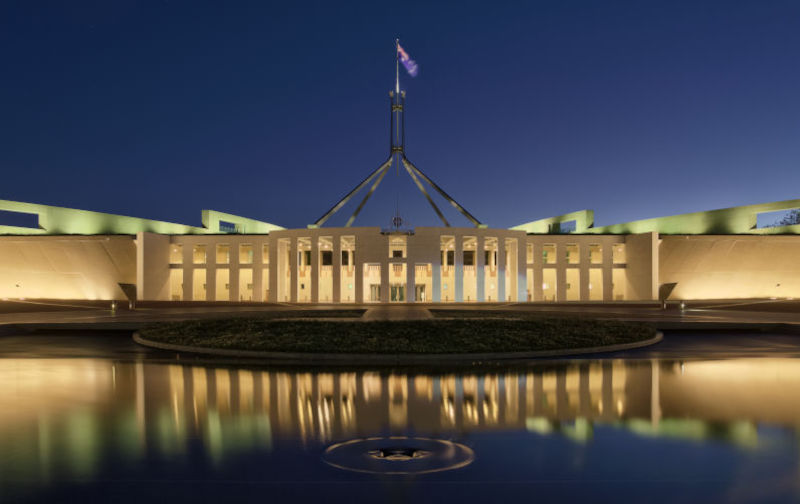Our democracy is weakening-here's how we can stop the rot
March 24, 2022
Australians are living through the longest period of sustained democratic dissatisfaction in the nations history, according to theAustralian Electoral Study.
Since 2007, measures of satisfaction with democracy have consistently fallen, while measures of distrust in government have consistently risen. The establishment of a Democratic Commission at the Commonwealth level is the key institutional piece of our outdated democratic jigsaw puzzle that must be put together to reverse this trend.
In a century where our democracy will continue to be tested by known and unknown threats domestic and abroad, such a dearth of trust in, and satisfaction with, our governance system represents plainly unsustainable footing. Democracys strength over all other systems is its capacity for public dialogue, and its mechanisms that support the exercising of the populaces will. These indicators are symptoms of a system in disrepair, its strengths decaying.
AsFreedom Houseidentifies annually, the democratic recession is a global problem, affecting traditional beacons of democracy, such as the United States and United Kingdom, as well as younger democracies, like India and Hungary. The drivers underpinning the democratic assault are many and varied. Internally, they include ineffective, self-interested governance that have eroded public trust, combined with more pronounced social, economic, and racial inequalities. Externally, carefully orchestrated, foreign-sponsored disinformation campaigns by more ambitious authoritarian regimes have sought to capitalise on these fragilities, further deepening social cleavages. Iraq and Afghanistan have not helped our cause, while the unfolding catastrophe in Ukraine is a case in point of the latter.
As members of a democratic society, when we express political support, it can be directed at an individual specifically, such as an MP, or can be expressed more broadly, by advocating for the rules and principles that comprise our democratic systems foundation. The former is specific support, the latter is diffuse support. These categories also work in the inverse when we express dissatisfaction with politics. We can direct it at an individual, or to the system. Democracy scholar Mark Warren has written aboutgeneralised distrust,a phenomenon in which, after extended periods of democratic dissatisfaction and falling specific support, sections of society, alienated by a system they perceive as fundamentally broken, withdraw from it.
Generalised distrust is characterised by individuals who no longer participate in democratic processes, become non-participants in public discussions, and are more likely to commit criminal activity compared to the general population. Alternatively, these individuals can exercise their dissatisfaction by supporting political actors aiming to disrupt the system. In recent times, theyve come in the form of Trump, Palmer, Farage, and Le Pen.
An electorate with an extended and growing trustdeficit is harder to persuade to accept reform.They are far harder to persuade to accept reform that involves sacrifices for the greater good, such as forgoing benefits to fund support for societies vulnerable. In a century where these trade-offs will be essential to maintaining Australias security and prosperity, there is an urgent need for a democratic breakthrough to restore public trust.
A Democratic Commission is a critical piece of the institutional puzzle required to effectively carry out this task. In the fashion of the Productivity Commission, the Democratic Commission would be an independent, arms-length public body whose core function would be to conduct research and advise the Commonwealth on Australias democratic performance. The Democratic Commissions purpose would be to monitor and evaluate Australias democratic performance and recommend solutions to address areas in need of improvement. Relevant areas could include the functioning of the justice system, questions of integrity and governance, and the effectiveness of our human rights frameworks.
The Democratic Commissions first task would be to undertake an extensive co-creation process to develop a shared conception of Australian Democracy. In similar fashion to Minister for Indigenous Australians Ken Wyatt and his Indigenous Voice co-design process, the Democratic Commission would traverse the country, combining townhalls with a national Democratic Summit, to establish a shared conception of Australian Democracy. This model would be used as the basis by which the Democratic Commission evaluates Australias democratic performance in a triennial Democratic Audit.
Currently, the Commonwealth Government does not possess a mechanism for the ongoing monitoring and evaluation of our democratic systems health and performance. This is a major risk, because it prevents attention and resources from being allocated systematically to addressing our democratic fragilities. The exposure of these fragilities to a substantial internal or external threat could undermine our ability to adequately respond to the next crisis.
There is an opportunity to restore Australian Democracy, by addressing the core issues that Australians nominate as underpinning their growing sense of distrust and dissatisfaction. A Democratic Commission should play a central role in this effort.
Failing to intervene in our democratic decline is a failure to appreciate Australian Democracys fragility, and its pre-eminence in underpinning our way of life. This is a mistake we cannot afford to make.

